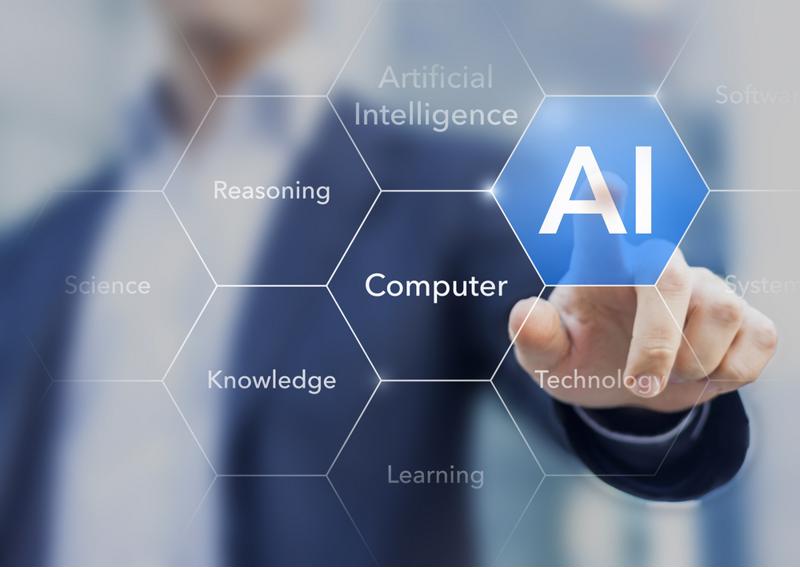
The promise of AI in health care
By Max BurkhalterSeptember 17, 2021
The reach of artificial intelligence (AI) is rapidly expanding in an increasingly digital world. Organizations across sectors, from marketing to health care, are adopting AI into their practices and seeing the results firsthand. Oberlo statistics show that 1 in 3 organizations were using AI in 2019, a total growth rate of 270% from four years previous. AI promises sweeping changes across industries, and has already demonstrated itself to be capable of major changes where it has been well implemented.
The health care industry is one that has begun to incorporate AI into their practices to dramatic results. AI in health care offers unsurprising benefits, facilitating more accessible care and ease of practice for providers. When used effectively, AI can greatly benefit health care, including standardizing data collection, keeping track of diseases and smoothing processes in health contexts.
AI and health care data
Oftentimes health care workers are overwhelmed with the sheer extent of patient data. Different systems across health providers means this information is sometimes difficult to access, convoluted or simply not available. The time providers intend to spend caring for patients is diluted with this data collection. For doctors to cover their bases and give the soundest medical advice, patient information has to be robust and complete.
Here's where AI steps in. Integrating AI into the health care industry as a data collection and tabulation method gives providers freedom. AI systems that collect and store information on behalf of the doctors means more patients can be seen and helped. Standardizing the format of this data collection is yet another useful benefit as it smoothes the process and releases it from human error. The information is therefore likely to be more accurate and free from human judgment and biases.

Disease recognition and AI response
Mobi Health News describes the use of AI analyses in treating outbreaks, particularly in the African Ebola virus where the AI analysis reduced treatment development time drastically. The implementation of AI in data-heavy situations accelerates the analysis process. AI technology can scan for patterns faster than its human counterparts, and draw conclusions just as quickly.
AI tracking disease information also cuts the cost of developing medicine for outbreaks. With a larger scope on the data of the infection, AI technology can identify key elements of a virus, and screen these data points to best combat and nullify the threat. In the case of the Ebola virus researchers were able to test the AI-suggested solutions to create a safe and rapid response. The implemented AI identified a novel drug use, and saved researchers months of hard work.
AI offers paths for rapid response when efficiently put into action. Researchers would have taken months, if not years, to sort through the collected data and draw conclusions. AI accelerated this process, and the result was a quick response to a potentially disastrous virus.
The implications of AI in health care
The ethical implications of implementing AI in health care echo concerns surrounding artificial intelligence across sectors. The world has become accustomed to associating AI with job-stealing, liability and a lack of human involvement. These worries persist in health care scenarios when human lives are on the line.
As with any application of artificial intelligence, the benefits must outweigh the risks. AI has enormous potential to aid in saving lives, as it already has in pandemics and with routine medical diagnoses. Bloated data overloads can be aided by AI, and doctors and researchers can use AI to their advantage. However, the attitude toward AI in health care is important to consider, especially as patents will have opinions about their private health care services interacting with technology.
It cannot be denied, though, that health care is one of many sectors in which AI is rapidly expanding regardless of resistance. The question thus becomes less about the fears associated and more about how it can be used and promoted to help. Undoubtedly there will be mistakes and errors in AI implementation and use, as there are with any health-related development. What remains important is transparency and recognition of AI's power in aiding the health care industry. Promoting these narratives, and pushing AI to be the most helpful tool, will continue to lead health care into new realms of effectiveness.

The potential AI has in health care is far reaching and deep, with most areas not yet explored. Technology holds enormous capacity for improvements. Health is one such area that can be increased and advanced dramatically by beneficial AI. Perle can help businesses expand and develop structures for these technological advancements. Read our customer success stories to learn more.



